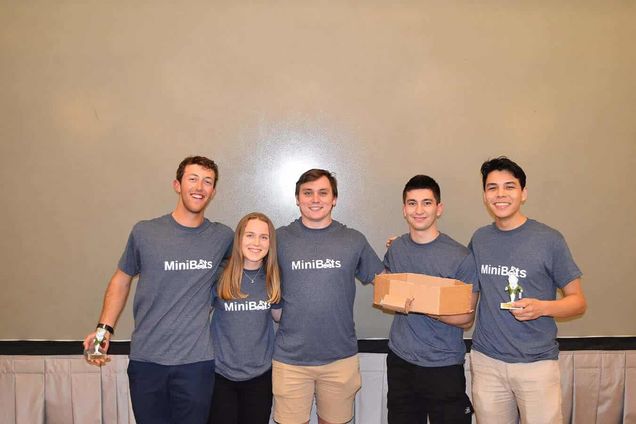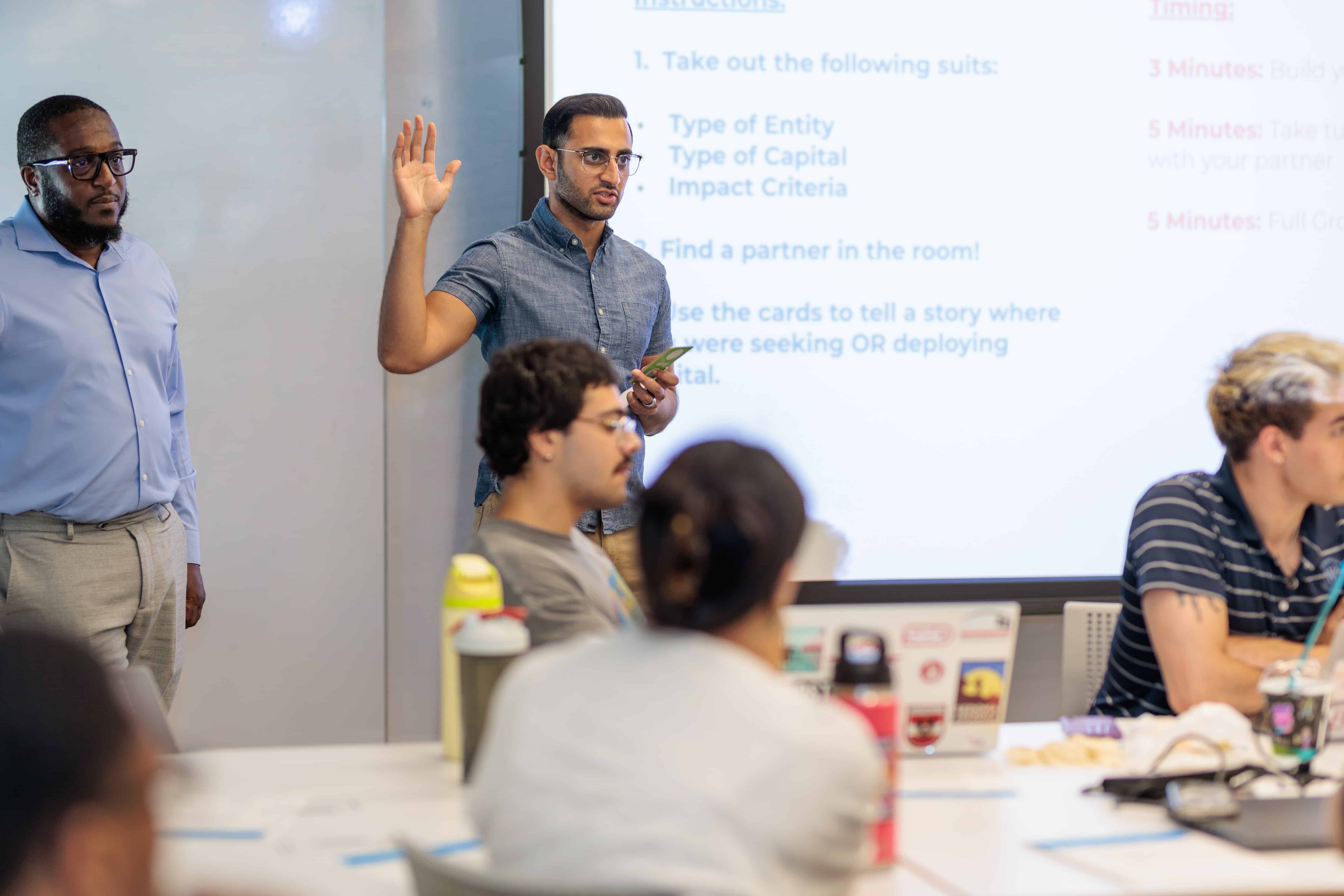Most Boston University students see the Charles River winding through campus, and consider it little more than a scenic waterway. Noah Robitshek (ENG’25) on the other hand, sees an untapped opportunity for data collection.
The senior computer engineering major from Traverse City, Michigan has combined his technical expertise with environmental impact through an innovative project supported by the Sustainability Innovation Seed Grant program from Innovate@BU and BU Sustainability. His team MiniBots is developing autonomous buoys for remote control sailboat racing that double as water quality monitoring stations.
“We’re building autonomous buoys for remote control sailboat racing,” Noah explains. “But additionally, we’re also attaching sensors to measure the quality of water to give this data to researchers around the world.”
What began as a senior design engineering project has evolved into something with potential long-term impact for Boston’s iconic river. The buoys, which serve as course markers for sailboat races, are equipped with sensors that collect temperature, humidity, and other water quality metrics—creating a data collection network across the waterway.
By attaching these sensors to these buoys we are creating, we are making a huge data set of data that has not been collected before in the world,” Noah says. “We’re empowering students here and researchers at BU to learn more and understand about the Charles River. The project gained momentum after Noah connected with the Charles River Conservancy and the Museum of Science, organizations with specific research needs that his technology could address. The team discovered their sensors could help study algae blooms, a significant environmental concern for the river.
“Just measuring in one place down by the end of the river gives you a little bit of information, but it doesn’t give you information about the whole Charles River,” Noah notes. “By collecting data at different points, we can build a bigger picture about what the Charles River is like, how it is changing and how it’s evolving.”
The journey from class project to funded venture began when Noah and a classmate decided to extend their work beyond the classroom. They turned to the Innovation Pathway, Innovate@BU’s venture development program that guides students through the process of building and launching their ideas.
“We came to the Innovation Pathway and we brought this project and said, ‘Hey, what can we do with this?’” Noah recalls. “We learned how to meet with customers and develop a product that people love.” Ultimately the Innovation Pathway helped Noah gained access to mentorship, funding, and pitch competitions that helped refine both his project and his entrepreneurial skills.

Additionally, Minibots received a $500 Sustainability Innovation Seed Grant which provided critical resources for purchasing sensors and creating functional prototypes. Beyond the funding, Noah found unexpected value in the grant cohort itself—a community of like-minded innovators tackling sustainability challenges from different angles.
“The best part of this grant is both the funding to allow us to purchase these sensors and build this project and create it in real life, as well as the cohort that’s been brought around,” Noah shares. “To meet people and learn about what they’re working on and talk about our projects and be inspired by what they’re doing has really been an amazing part and something that I didn’t expect going into it.”
For Noah, the Boston University innovation ecosystem has become as valuable as his technical education. The community of entrepreneurs, mentors, and fellow student innovators has created an environment where ideas can flourish and develop into impactful ventures.
“My favorite part about Innovate@BU is definitely the people, both the mentors and the people who work here, as well as the amazing students that come to this space,” he reflects. “It really attracts the best students on campus, building the most awesome things. And so to be a part of this ecosystem is really phenomenal.”
Learn more about the Innovation Pathway





